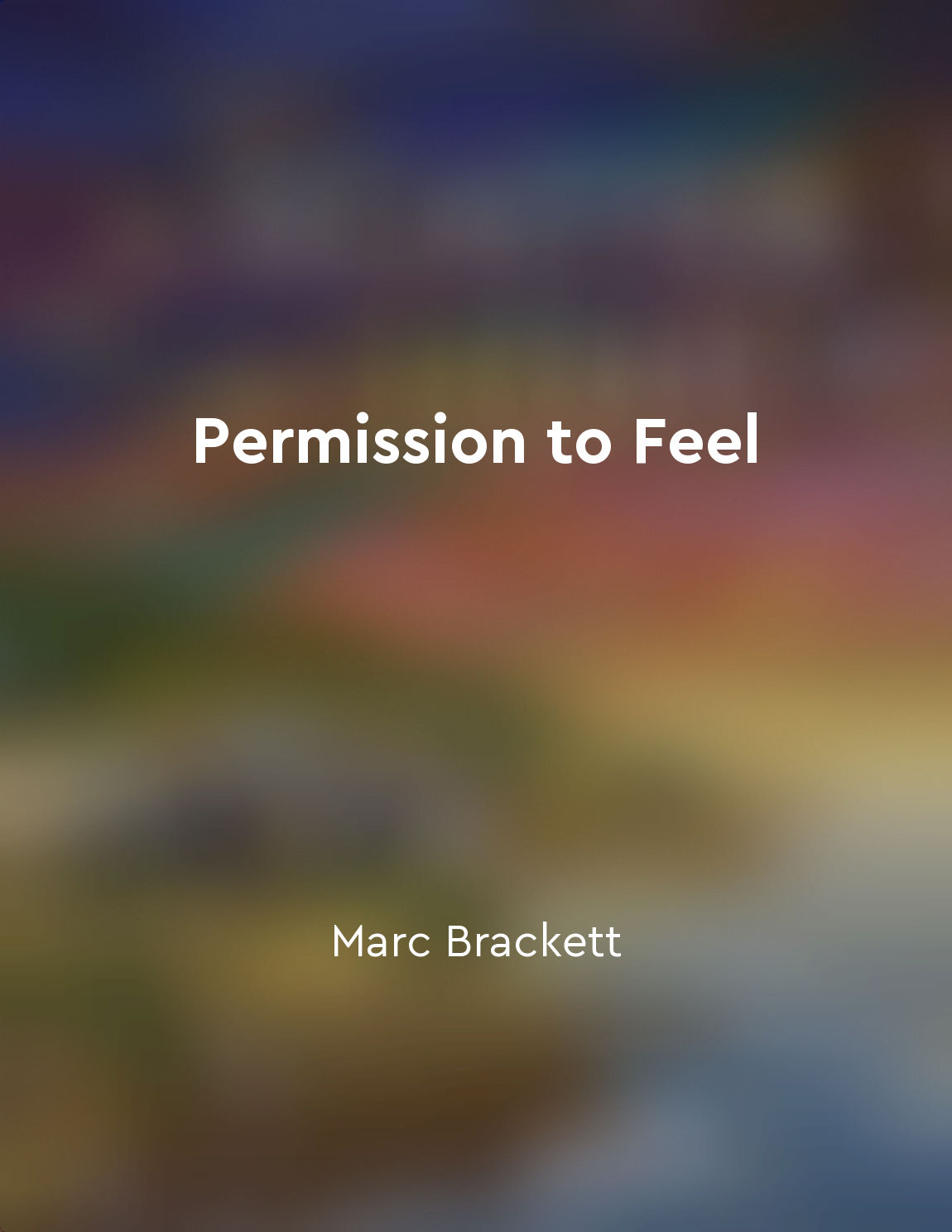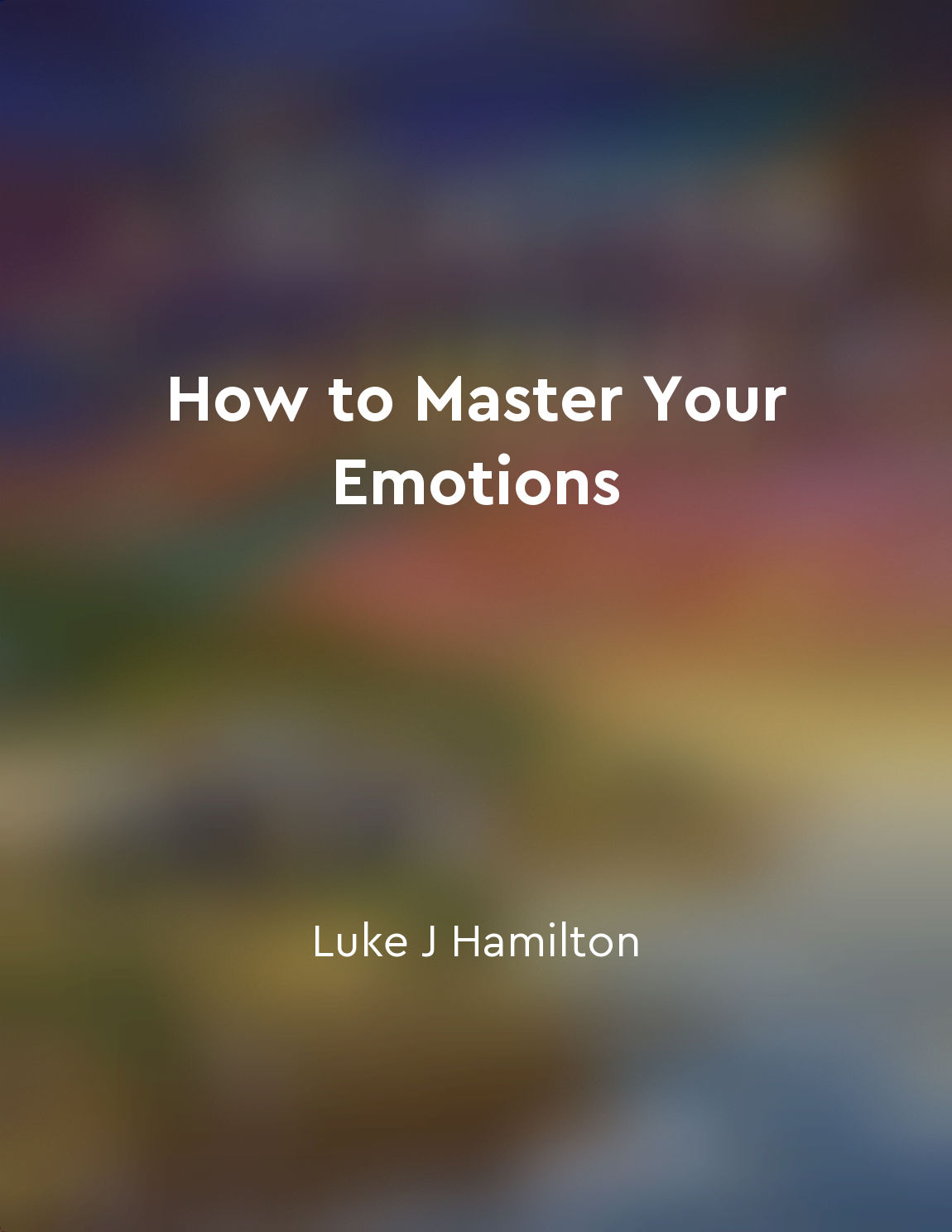Take time to reflect on your emotions to gain insight into their triggers from "summary" of How to Master Your Emotions by Luke J Hamilton
Reflecting on your emotions is a crucial step in understanding why you feel the way you do. It involves taking the time to pause and analyze your feelings, rather than simply reacting to them impulsively. By doing so, you can gain valuable insights into what triggers certain emotions, allowing you to address the root cause of your feelings. When you reflect on your emotions, it's important to be honest with yourself. This means acknowledging your emotions without judgment or criticism. Instead of dismissing or suppressing your feelings, allow yourself to fully experience them and explore the reasons behind them. This level of self-awareness can help you develop a deeper understanding of your emotional responses and patterns. One way to reflect on your emotions is by journaling. Writing down your thoughts and feelings can provide clarity and perspective on why you are experiencing certain emotions. It allows you to track your emotional triggers over time, helping you identify recurring patterns or situations that provoke specific feelings. Another effective method of reflection is mindfulness meditation. By practicing mindfulness, you can observe your thoughts and emotions without attaching judgment to them. This allows you to cultivate a sense of awareness and presence in the moment, enabling you to better understand the source of your emotions. In addition to journaling and mindfulness meditation, discussing your emotions with a trusted friend or therapist can also be beneficial. Talking about your feelings out loud can help you gain new insights and perspectives on why you feel the way you do. External feedback can provide a fresh outlook on your emotions, leading to a deeper understanding of their triggers.- Taking the time to reflect on your emotions is a powerful tool for mastering your emotional well-being. By delving into the root causes of your feelings, you can gain valuable insights that enable you to respond to your emotions in a more thoughtful and intentional manner. This self-awareness can lead to greater emotional intelligence and resilience, ultimately empowering you to navigate life's challenges with grace and clarity.
Similar Posts
Families play a key role in supporting loved ones with mental illness
Families are essential in the care and support of individuals struggling with mental illness. They play a crucial role in the r...

Emotions impact our relationships and interactions
Emotions are the invisible forces that shape our interactions with others. They influence the way we communicate, connect, and ...
Embracing the complexities of love
Love is a messy, tangled web of emotions that can leave us feeling lost and confused. It's not always easy to navigate the comp...
Be gentle with yourself and others
In our daily lives, it is important to remember to treat ourselves and others with gentleness. This means being kind, patient, ...

Focus on the present moment
Focusing on the present moment involves being fully engaged in what we are doing right now, without letting our minds wander to...
Nurture meaningful relationships
Building deep connections with others is a priceless art that few people truly master. It requires time, effort, and a genuine ...

Practicing gratitude can lead to a more positive outlook on life
In life, there are many things that can bring us down - stress, setbacks, disappointments. However, it is important to remember...

Embrace the wisdom of acceptance
To embrace the wisdom of acceptance is to recognize and acknowledge the reality of each moment as it unfolds. It is to let go o...
The power of empathy lies in understanding others' emotions
Empathy is a mighty force. It allows us to connect with others on a deep emotional level. It is not about feeling sorry for som...
Mindfulness is about being open to whatever arises
Mindfulness is not about avoiding or suppressing certain thoughts or feelings that arise. It is about being open and accepting ...


